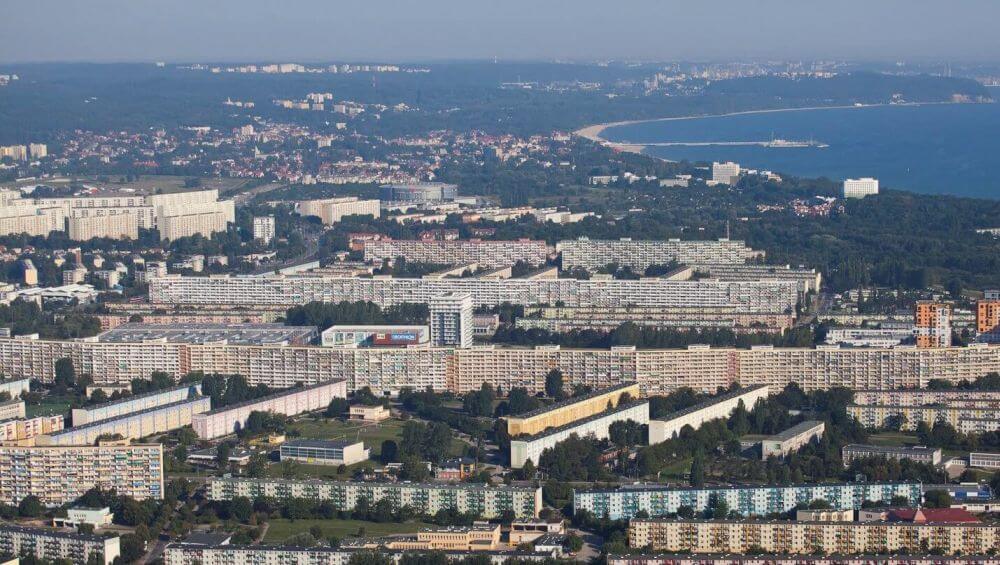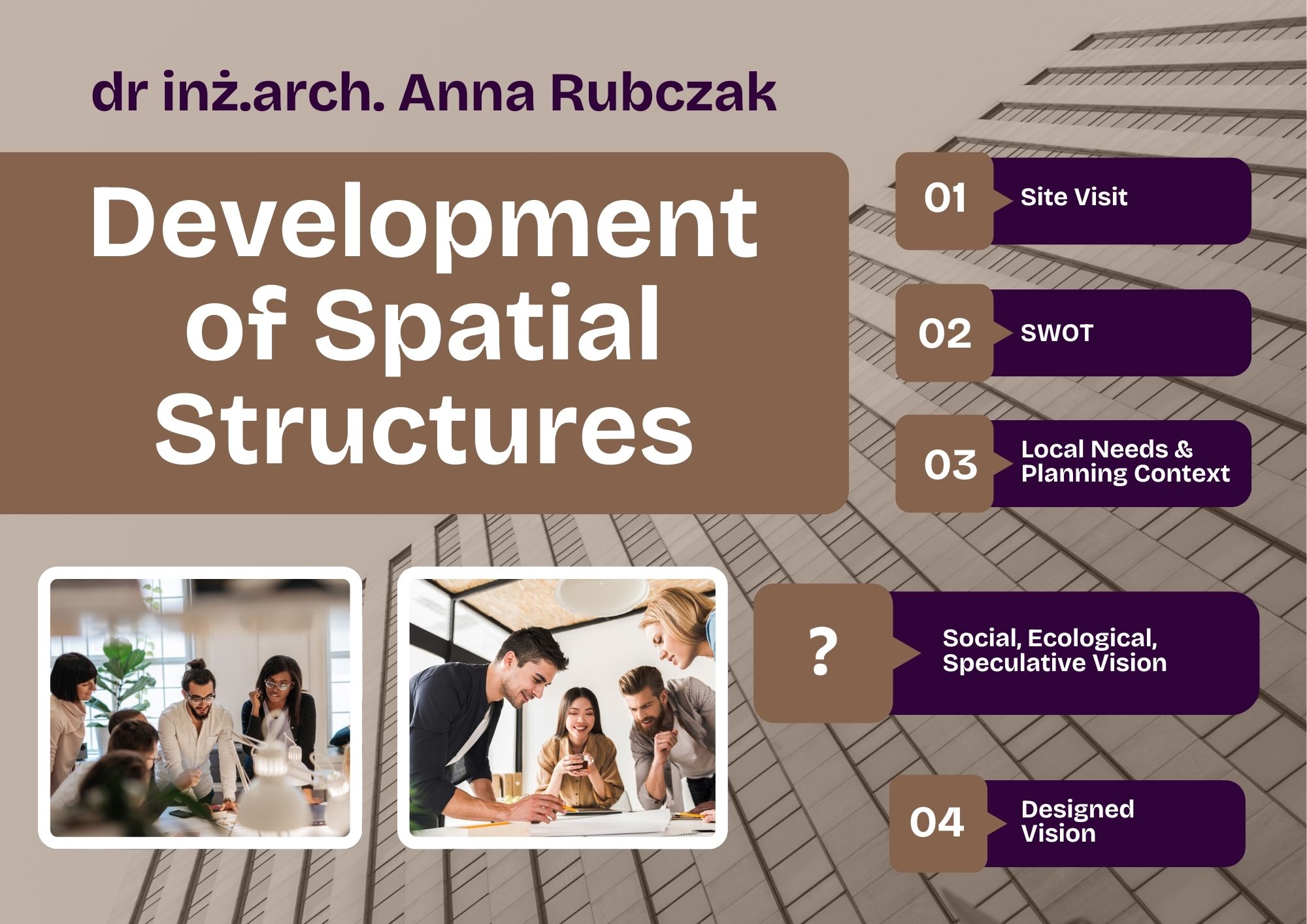
CourseTeam research project implemented in the first and second semesters of second-cycle studies at the Faculty of Architecture in the field of study: Spatial Development.
- Teacher: Anna Golędzinowska
- Teacher: Karolina Krośnicka
- Teacher: Justyna Martyniuk-Pęczek
- Teacher: Anna Orchowska
- Teacher: NATALIA Sokół

- Teacher: Izabela Mironowicz
- Teacher: Łukasz Pancewicz

temat:
Tegoroczny kurs Kompleksowego Planowania Miast poświęcony jest szeroko rozumianej problematyce odnowy i rewitalizacji miasta, w kontekście przekształceń dzielnic.
Motywem przewodnim będzie hasło "Dzielnica Metropolitalna" - odpisujące kompleksowość problematyki obserwowanej w paśmie mieszkaniowym Dolnego Tarasu w Gdańsku. Położenie z przy pasie zieleni nadmorskiej i plaż nad Zatoką plasuje ten rejon wśród najbardziej atrakcyjnych, nadal egalitarnych terenów mieszkaniowych nie tylko Gdańska, ale całego kraju. Modernistyczny Gdańsk na osi ul. Chłopskiej i al. Rzeczpospolitej, coraz silniej odczuwa kontrast z dynamicznie rozwijającym się od dekady układem zabudowy komercyjnej na osi alei Grunawaldzkiej. W reklamach inwestycji czytamy, że rejon wokół ul. Kołobrzeskiej to "centrum metropolii". Studio projektowe stawia zatem pytanie-hipotezę o wizję przekształceń sformułowana w postaci (mikro)strategii rozwoju dzielnicy funkcjonalnej.
- Teacher: Gabriela Rembarz

Kurs Zespołowy projekt badawczy realizowany na I i II semestrze studiów II stopnia na Wydziale Architektury, na kierunku Gospodarka Przestrzenna.
Celem zespołowego projektu badawczego jest przeprowadzenie procesu, w ramach którego Studenci zweryfikują zadaną przez Klienta hipotezę badawczą.
- Teacher: Anna Golędzinowska
- Teacher: Karolina Krośnicka
- Teacher: Justyna Martyniuk-Pęczek
- Teacher: Krzysztof Nowicki
- Teacher: Anna Orchowska
- Teacher: NATALIA Sokół

Kurs obowiązkowy dla studentów I semestru studiów magisterskich na kierunku Gospodarka przestrzenna - specjalność Zarządzanie strefa przybrzeżną (w języku polskim).
- Teacher: Izabela Mironowicz
- Teacher: Gabriela Rembarz

The main goal of the course is to make students aware of the different aspects of integrated planning processes in relation to the local scale
- Teacher: ANNA Rubczak